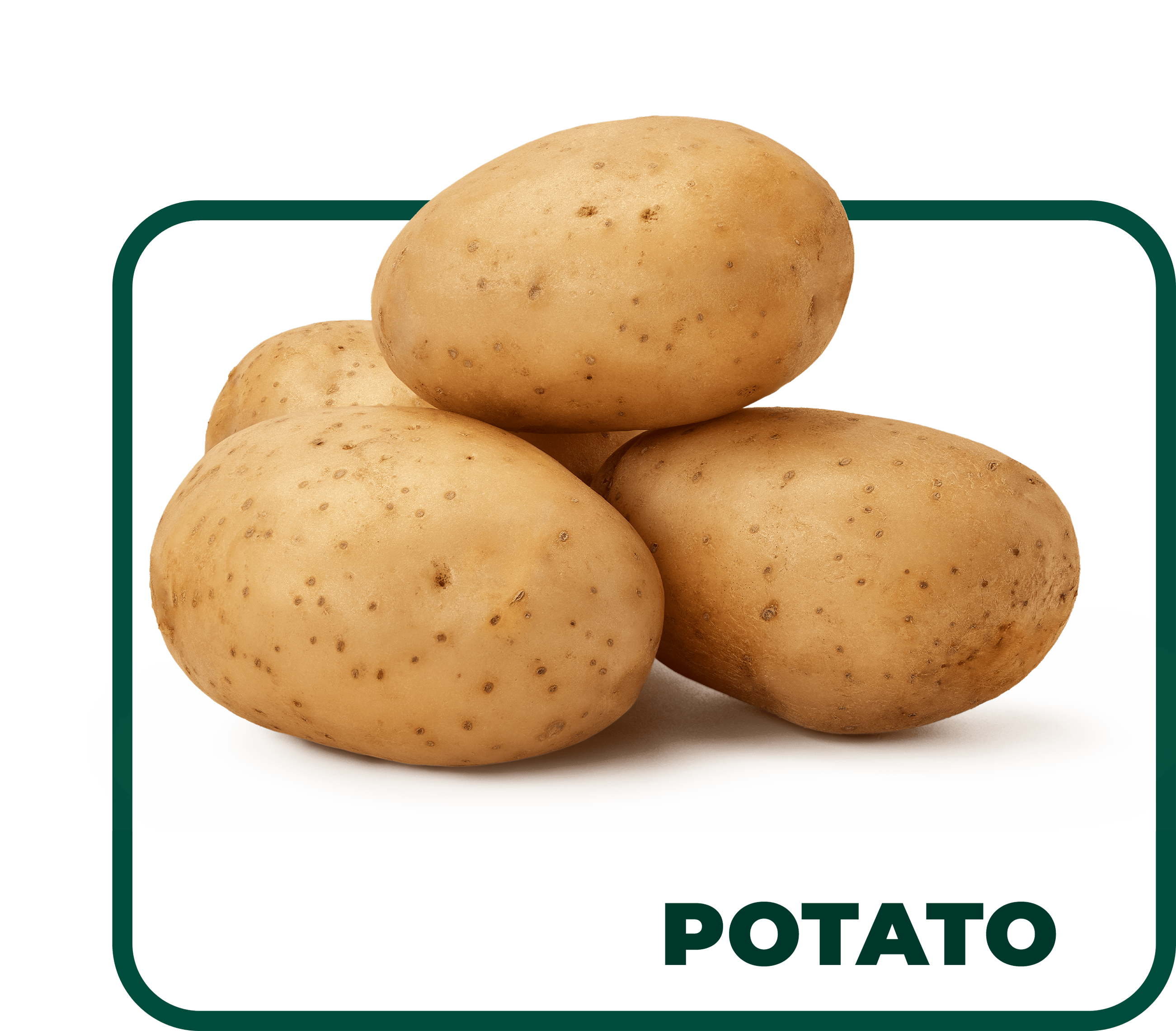
Potatoes
Egyptian potatoes are known for their versatility and rich, earthy flavor. These tubers come in various varieties, including both waxy and starchy types. They have a firm texture and are used in a wide range of culinary applications, from mashed potatoes and fries to soups and salads. Their adaptability in cooking makes them a staple ingredient in many cuisines.

Potatoes are typically planted in early spring, as soon as the soil can be worked and the threat of frost has passed. They prefer well-drained soil with plenty of sunlight and require consistent moisture for optimal growth. Potatoes usually take about 70 to 120 days from planting to harvest, depending on the variety. Harvesting involves digging up the tubers once the plants have flowered and the foliage has begun to die back, ensuring that the potatoes are fully mature and ready for storage.
Consuming Egyptian potatoes can support overall health by providing essential vitamins and minerals, promoting digestive health, and contributing to heart health. The high vitamin C content boosts immune function and supports healthy skin, while potassium helps regulate blood pressure and supports cardiovascular health. The dietary fiber in potatoes aids digestion, helps maintain a healthy gut, and supports stable blood sugar levels.
Potatoes offer a range of essential nutrients, such as vitamins C and B6, potassium, and dietary fiber. Vitamin C supports the immune system and skin health, while vitamin B6 is crucial for brain function and metabolism. Potassium aids in maintaining healthy blood pressure, and dietary fiber enhances digestive health and helps control blood sugar levels. Additionally, potatoes contain antioxidants like flavonoids and phenolic compounds, which protect cells from oxidative damage.
